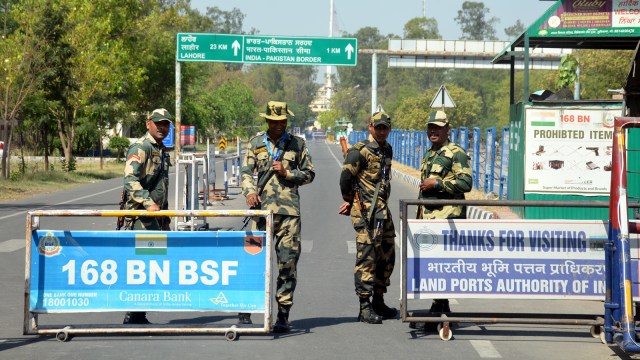
This move, a day after cancelling visas under a special SAARC scheme, will impact Pak nationals who come to India for medical treatment and those who visit their pre-Partition divided families.
Story continues below this ad
Additionally, New Delhi advised its nationals to avoid travelling to Pakistan and asked those still there to return.
On Wednesday, India had also expelled diplomats and top defence officials from the Pakistan High Commission effectively halving the mission strength.
It withdrew its own advisors and staff from its mission in Islamabad.
Thursday’s retaliation, after the Pahalgam attack that killed 25 tourists and one local resident Tuesday, is the strongest since the abrogation of Article 370 in 2019. The Pahalgam attack is also the deadliest terror attack on civilians in India, since the 26/11 Mumbai terror attack.
Story continues below this ad
In tandem, Foreign Secretary Vikram Misri briefed a group of foreign ambassadors in the Ministry of External Affairs — part of Delhi’s coercive diplomacy to further isolate Pakistan and increase international pressure to bear on it. Delhi has underlined “the cross-border linkages of the terrorist attack.”
Prime Minister got calls from French President Emmanuel Macron, Italian PM Giorgia Meloni, Israel PM Benjamin Netanyahu, Egyptian President Abdel Fatah el-Sisi among others over the Pahalgam attack.
In a statement, the MEA said all existing valid visas issued by India to Pak nationals stand revoked with effect from April 27, 2025. It added that medical visas issued to Pak nationals will be valid only till April 29, 2025. “All Pakistani nationals currently in India must leave India before the expiry of visas, as now amended,” it said.
This came a day after Misri had said that “Pakistani nationals will not be permitted to travel to India under the SAARC Visa Exemption Scheme (SVES) visas. Any SVES visas issued in the past to Pakistani nationals are deemed cancelled.”
Story continues below this ad
“Any Pakistani national currently in India under SVES visa has 48 hours to leave India,” he said.
The SVES was launched in 1992 after leaders at the Fourth Summit (Islamabad, 29-31 December 1988), realising the importance of having people-to-people contact among SAARC countries, decided that certain categories of dignitaries should be entitled to a special travel document.
As directed by the Summit, the Council of Ministers regularly kept under review the list of entitled categories. Currently, the list includes 24 categories which include dignitaries, judges of higher courts, Parliamentarians, senior officials, businessmen, journalists, sportspersons.
Visa stickers are issued by the respective Member States to the entitled categories of that particular country. The validity of the Visa Sticker is generally for one year. The implementation is reviewed regularly by Immigration authorities of SAARC member states.









